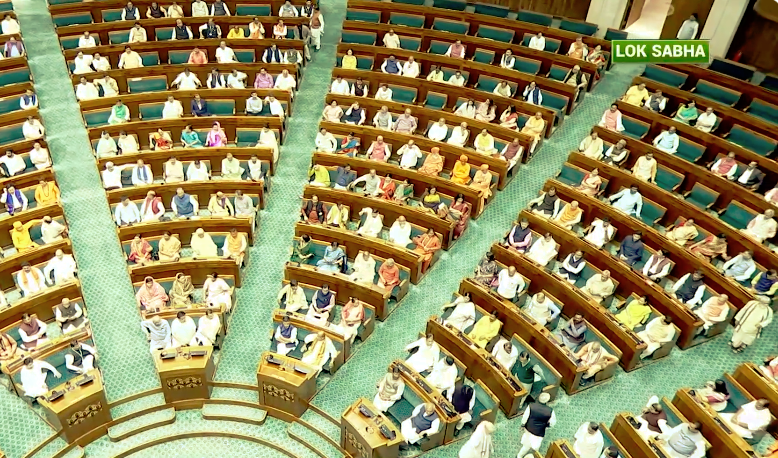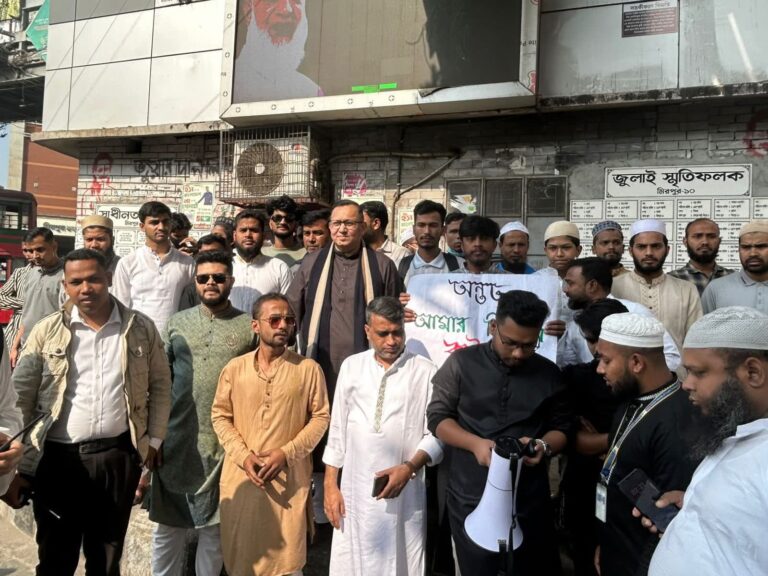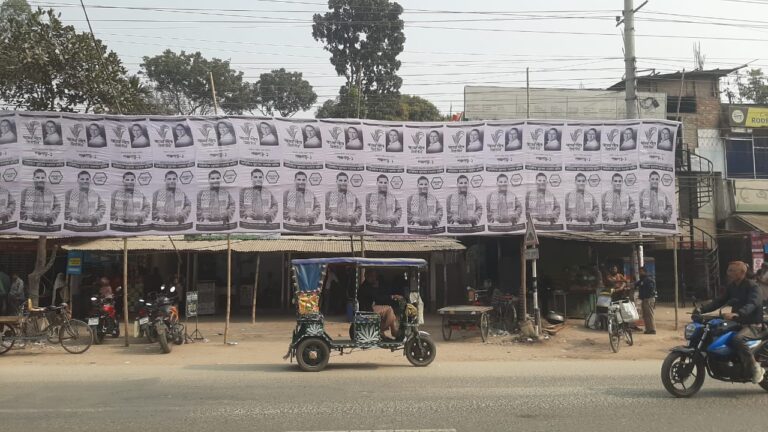
TV grab from Sansad TV
 By G Krishna Mohan Rao*
By G Krishna Mohan Rao*
New Delhi: Women’s Reservation Bill becomes a reality at last after being first introduced in Parliament way back in 1996. But the twist in the story is that this Bill, once passed by the Lok Sabha after the Rajya Sabha passed it way back in 2010, will not come into force for the upcoming Lok Sabha polls scheduled in April-May next year.
It has not been an easy journey for the Women’s Reservation Bill in the country as it requires a Constitutional amendment and building political consensus around the issue has not been easy for successive governments since 1992. The present Bill was passed by Rajya Sabha in March 2010 and since then it has not been passed in the Lok Sabha for more than 13 years.
With the approval of the Union Cabinet last night, for the introduction of the Women’s Reservation Bill in the Lok Sabha, the Lower House of Parliament is all set to debate and decide the fate of fixing quota for women in the Lok Sabha and assemblies this week during the special session. With broad political support, including from Congress and many regional parties, this Constitutional Amendment Bill, which could not be passed in the Lok Sabha for 13 years, is likely to sail the this time.
In fact, the government in its revised list of business today listed the Women’s Reservation Bill in the Lok Sabha to provide one-third reservation to women as “The Constitution (One Hundred and Twenty-Eight Amendment) Bill 2023” for introduction in the lower house through a supplementary list of business. This was the first bill to be introduced in the new Parliament building, which was formally opened today. Law Minister Arjun Meghwal introduced the bill today.
The government said the Women’s Reservation Bill is aimed at enabling greater participation of women in policy-making at the state and national levels since it is extremely important for achieving the goal of making India a developed country by 2047. The reservation will come into effect after a delimitation exercise is undertaken and will continue for 15 years. Seats reserved for women will be rotated after each delimitation exercise, according to the Bill.
Sources said that the proposed legislation will come into effect by 2029 ( next Lok Sabha) after the constituencies are redrawn as part of the delimitation exercise based on the decennial census expected to get underway in 2026. It may be recalled that the scheduled census could not take place due to Covid-19.
Sources in the government were confident of the prospects of the bill in parliament this time as well as enlisting the necessary support from states. Besides Congress party and regional parties like the Biju Janata Dal, Trinamul Congress, Bharat Rashtra Samithi, YSR Congress, etc have been in support of the measure. Prime Minister Narendra Modi himself did not appear to be in any doubt as he declared that the Special Session of Parliament would be “historic”. In the old parliament, Modi had dropped a clear hint about what was afoot when he talked about inclusiveness as one of the hallmarks of Indian parliamentary democracy and talked about the contribution of women lawmakers.
It may be recalled, that the issue of women’s reservation was first taken by Parliament for deliberation through the introduction of the 81st Constitutional Bill 1996, in the 11th Lok Sabha on September 12, 1996. Given the sensitive political nature of the Bill, it was referred to the Joint Committee of the two Houses of Parliament under the chairperson of Geeta Mukherjee.
Though the Geeta Mukherjee-led joint parliamentary committee submitted its report and made several recommendations in December 1996, the Bill could not be passed and lapsed with the dissolution of the 11th Lok Sabha. Another effort was made in the 12th Lok Sabha and a similar Bill 84th Constitutional Amendment Bill 1998 was introduced in the 12th Lok Sabha, which also lapsed with the dissolution of the 12th Lok Sabha.
The third attempt was made in the 13th Lok Sabha as the 85th Constitutional Amendment Bill,1999 was prepared on the lines of the earlier two Constitutional Amendments Bills and introduced in the Lok Sabha in December 1999, but could not be considered due to lack of political consensus. Again, the Manmohan Singh government-led United Progressive Alliance (UPA) also introduced as 108th Constitutional Amendment Bill in 2008, which was referred to the department-related Parliamentary Standing Committee of the Rajya Sabha on May 8, 2008.
The Standing Committee led by Jayanti Natarajan submitted recommendations to the Rajya Sabha and Lok Sabha in December 2009 and the Bill was passed by the Rajya Sabha in March 2010. The Rajya Sabha being a permanent house, the Bill passed by the Rajya Sabha on March 9, 2010, did not lapse as the earlier Constitutional Amendments Bills introduced in the Lok Sabha in 1996, 1998 and 1999 had lapsed with the dissolution of the 11th, 12th and 13th Lok Sabhas.
In other words, the issue of women’s reservation continued to dominate the political agenda of the parties. This issue has been highlighted in the Lok Sabha and State Assemblies’ manifesto of the Bharatiya Janata Party in both the 2014 and 2019 Lok Sabha elections. Even for that matter, Congress and several regional parties mentioned the women’s reservation in their manifesto.
*Senior journalist





